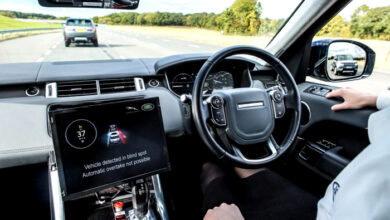During the monkeypox outbreak in Africa, sickness and death were not found.

In YALOLIA, Democratic Republic of Congo, At a village clinic in central Congo, which is cut off from the rest of the world by a network of rivers and forests, a six-year-old girl named Angelika Lifafu clutches her dress and screams as a nurse in a protective suit picks at one of the many boils on her skin.
Lisungi Lifafu, her 12-year-old uncle, sits at the foot of her bed, facing away from the light that comes in through the doorway and hurts his eyes, which are swollen and weeping. He lifts his chin when nurses come near, but he can’t look up.
The children have a disease called monkeypox, which was first found in the Congo 50 years ago. Since 2019, the number of cases in West and Central Africa has gone up. The illness didn’t get much attention until this year, when it spread around the world and made 77,000 people sick.
Related: Valneva focuses on Lyme illness following a COVID blow
During the current outbreak, there have been far fewer cases in Africa than in Europe and the US. This is because people in Europe and the US rushed to get vaccines when the illness hit their shores this year.
But the number of deaths and people infected in Congo could be much higher than the official numbers show, Reuters reports. This is because testing is hard to do in rural areas that don’t have the right tools and effective medicines aren’t available.
This month, Reuters reporters went to the remote area of Tshopo for six days and found about 20 people with monkeypox, including two who had died. Their cases had not been recorded until the reporters went there. Angelika and Lisungi did not have access to vaccines or drugs that fight viruses.
More than a dozen health workers said that tracking down the virus is nearly impossible because there aren’t enough places to test for it and there aren’t enough ways to get around.
When asked about undercounting, the African Centers for Disease Control and Prevention (CDC) said that their data didn’t show how big the outbreak really was.
Figures from the U.S. CDC show that only about 10 people in the West have died of monkeypox this year. Europe and the U.S. have been able to vaccinate groups that are at risk. Experts say that suspected cases are routinely tested, isolated, and treated as soon as possible, which increases the chance of survival. The number of cases in Europe and the United States has levelled off and started to go down.
But in poorer African countries where people don’t have quick access to health care or aren’t aware of the risks, over 130 people have died, almost all in Congo, according to the African CDC.
In Africa, there are no vaccines for monkeypox that people can get.
Angelika and Lisungi can’t do anything about their illness, so they have to wait for it to run its course. A lot of different things could happen, like getting better, going blind, or dying, like a family member did in August.
“These children have a disease that makes them suffer so much,” said Litumbe Lifafu, Lisungi’s father, at the clinic in Yalolia, a village of scattered mud huts 1,200 kilometres (750 miles) from the capital Kinshasa.
“We want the government to give us poor farmers medicine and the vaccine to fight this disease,” they said.
History Repeats
Last year, the World Health Organization said that the response to the COVID-19 pandemic was a “moral failure.” This was because African countries were at the back of the line for vaccines, tests, and treatment.
But these failures are happening again with monkeypox a year later, health workers told Reuters. Experts say that this could cause the disease to spread in Africa and around the world in the future.
While sudden demand from Western countries ate up all the vaccines that were available, poor countries like Congo, where the disease has been around long enough to be endemic, have been slow to ask the WHO and its partners for supplies.
Congo’s health minister, Jean-Jacques Mbungani, told Reuters that Congo was in talks with the WHO about buying vaccines but that no formal request had been made. A representative for Gavi, the alliance for vaccines, said that the group had not heard from any African countries where the virus was common.
A WHO spokeswoman said that since there are no vaccines, countries should instead focus on surveillance and finding people who have been in contact with the disease.
Professor Dimie Ogoina, who is the head of the independent Nigerian Infectious Diseases Society, said, “History repeats itself.” He said that disease control in Africa never gets the money it needs until countries with more money are at risk.
“It happened with HIV, Ebola, and COVID-19, and it’s happening again with monkeypox.”
Related: As the virus spreads, China’s exports in April were the lowest in two years, according to customs data.
Without enough resources, he and other experts said, it is impossible to know how far the virus has really spread.
“In Africa, we work in the dark,” Ogoina said. “The number of cases is way lower than it should be.”
Monkeypox is passed on by coming into close contact with sores on the skin. Most people get better within a few weeks. Young children and people with weak immune systems are especially at risk for serious problems.
Based in part on data from health authorities, the African CDC says that there have been more than 4,000 suspected or confirmed cases and 154 deaths in Congo this year. That is a lot less than the 27,000 or so cases in the US and the 7,000 cases in Spain. Ghana and Nigeria are both in Africa and have outbreaks. Ghana has about 600 suspected and confirmed cases, and Nigeria has almost 2,000.
The acting head of the African CDC, Ahmed Ogwell Ouma, said, “Yes, there is an undercount.” “Most of the places where monkeypox is spreading don’t have regular health care facilities.” He said that the CDC did not know how big the undercount was right now.
Congo’s health minister, Mbungani, said there were not enough testing facilities outside of Kinshasa, but he did not answer a question about missed cases.
THE FOREFRONT
African countries hoped that the WHO’s decision in July to call monkeypox an international public health emergency would prompt more help.
Ambrose Talisuna, WHO’s monkeypox incident manager on the continent, said that the WHO sent about 40,000 tests to Africa, including 1,500 to Congo.
This month, patients with monkeypox at the National Institute for Biomedical Research in Congo started taking the antiviral drug tecovirimat as part of a clinical trial. Even though there are no vaccines available to the public, the health minister, Mbungani, said that the Imvanex vaccine made by Bavarian Nordic is being tested on health workers in Congo.
But not much has changed in the centre of Congo.
Angelika and Lisungi are patients at Yalolia, which can only be reached by motorbike tracks that wind like tunnels through the thick jungle or by canoes made from tree trunks. A group of wooden bridges fell down years ago, cutting off an old road that led to nearby villages.
Lisungi’s older brother got a rash and had trouble breathing in August. The family thought that it was smallpox. When his health got worse, a doctor hooked him up to an IV drip. Before it was empty, he died.
Grieving, Lisungi hugged the infected body of his dead brother. Two weeks later, at the beginning of September, he got a rash and his eyes got so big that he couldn’t open them. Then Angelika fell ill.
Lisumbe took the kids to Yalolia, where, based on their symptoms, they were told they had monkeypox. He sold his things to get them medicine to make them feel better.
The nurses who care for them are angry that they aren’t getting any treatments.
“We should get the vaccine if there is one. If there is a cure, we should be the ones to get it, “said nurse Marcel Osekasomba.
No one told the authorities about any of the cases until Reuters and a local health official named Theopiste Maloko went to Yalolia. He went to the village only because Reuters told him to.
Since they don’t have test results yet, they are now listed as “suspected cases.”
INDIVIDUAL CASE
Tshopo is almost as big as the UK. It has a lot of trees and is cut up by the Congo River and its many branches. Maloko’s job is to look for people in a 5,000-square-kilometer area. But he can’t buy gas and has no way to get to work.
Maloko was sceptical when nurses took samples from Angelika’s leg sores and put them in a polystyrene cool box that was attached to the back of a motorcycle.
He said that for samples not to go bad, they need to be kept cold and sent to a lab within 48 hours. However, this does not happen very often. The closest lab is in Kinshasa, and it takes weeks or months to get the results.
“We are in pain. This is our real call for help. “We are shouting so that someone can hear us,” he said.
Sometimes samples are not even taken.
By land and boat, it takes a day to get from Yalolia to the village of Yalanga. It is in the middle of a jungle and doesn’t have a phone network or electricity. When it gets dark, people who go to the health centre lie on hard bamboo beds in the dark.
In the past few months, three people have gone to the clinic, which is a small building with a tin roof and five rooms. Nurses have to walk for half a day to get phone reception so they can tell authorities about a new case. When they are busy, you can’t get away. Alingo Likaka Manasse, a nurse, said that the most recent cases have not been reported for weeks.
Lituka Wenda Dety, a mother of four who is 41 years old, thinks she got sick because she ate tainted bush meat. In August, when her illness was at its worst, her throat hurt so much that she had trouble swallowing her own saliva.
Dety’s body is still covered with round scars, and her bones hurt. She feels sad. While she was in the hospital because she was sick, her 6-month-old son got monkey pox and died. He is buried in a sandy area of land next to her mud-brick house.
Dety and her family gather around the small rectangular grave at the end of the day. She prays in a whisper.
“We want a campaign to get people vaccinated,” she said. “Based on what we’ve been through, if a lot of people get this disease, it will be terrible.”





